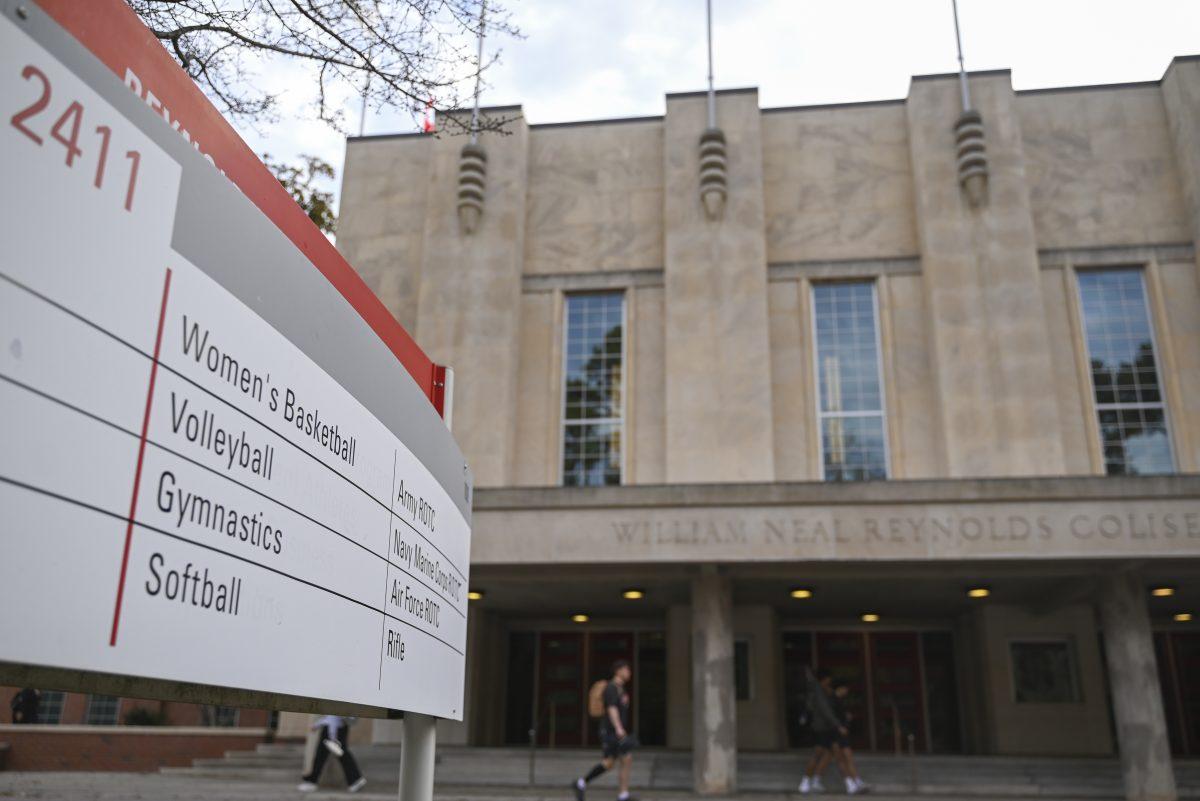The NC State Board of Trustees convened Friday morning to address key university developments, including the College of Engineering expansion and the removal of diversity, equity and inclusion programs in Chancellor Randy Woodson’s final meeting.
College of Engineering Dean Jim Pfaendtner outlined the college’s strategic plan to address North Carolina’s growing workforce demands. He said the college is currently ranked as the 10th largest engineering program in the nation, with over 12,200 students enrolled as of Fall 2024.
The college’s expansion plan aims to add 4,000 engineering degrees by leveraging $30 million in state funding. Pfaendtner said while this funding has put the college halfway toward its goal, additional support is needed to complete projects such as a new engineering building on Centennial Campus.
Pfaendtner said experimental AI courses tailored for freshman engineering students will be introduced in the fall, as well as a new AI concentration being offered to computer science majors.
“We need to rethink from the ground up,” Pfaendtner said. “How we educate engineers and we bring all the fundamentals alongside this brand new technology. We also want faculty to have access to these tools. We want faculty to reimagine their research programs in this new AI era, and we want our faculty to take AI tools and help our students learn better and succeed.”
Woodson began the open session of the meeting, saying he and other administrators recognize the challenges the University is facing from recent federal directives. He said administrators are having “robust conversations” on how to move forward.
“Honestly, it has been a challenging time in higher education, as it has been in many of your businesses, just to keep up with all the changes, and it’s been particularly impactful for higher education,” Woodson said.
Woodson said this year, NC State received over 50,000 applications for undergraduate admission, a record-breaking 12% increase from last year’s total. From this pool, the University admitted approximately 18,000 students, aiming to enroll a freshman class of just under 6,000. Thus, Woodson said admissions are getting increasingly competitive, with the incoming students scoring an average unweighted GPA of 3.9. Additionally, 91% of the admitted students rank in the top 25% of their high school classes.
Woodson congratulated the NC State women’s basketball team on their March Madness run and Vince Robinson for securing the 125-pound division wrestling national championship. He also said Will Wade’s hiring to the men’s basketball head coach position has “created a lot of excitement.”
The Board unanimously approved a credit-hour increase for the Bachelor of Science in Industrial Engineering program, raising the requirements from 124 to 127 credits. The change, requested by the College of Engineering, adds coursework in data science and sustainability.
Any programs wishing to extend credit requirements beyond the UNC System’s maximum of 120 credits are asked to appeal to the Board of Trustees. David Powers, a member of the Board, said 20 NC State programs have received approval for this waiver, with 17 of those being from the College of Engineering.
Ed Weisiger, chair of the Board, said the University is continuing to review any major-specific DEI requirements following the removal of the U.S. Diversity, Equity and Inclusion general education course requirement in February.
Allison Markert, a fourth-year studying natural sciences and outgoing student body president, presented key Student Government initiatives and reaffirmed SG’s commitment to DEI.
SG is partnering with the Office of Information and Technology to establish mobile Wolfpack One Cards, which would be housed in digital wallets. Markert said there is a pilot program being tested in Talley Student Union, and there are ongoing conversations surrounding how to use the mobile card to access dining halls and dorm buildings.
Markert said SG is passionate about protecting inclusion efforts on campus, namely student centers and learning villages.
“We saw two living and learning villages redacted this year, and students feel as if they’re not really gaining an understanding of why,” Markert said.
Markert said SG is advocating for the three credits once belonging to the U.S. Diversity, Equity and Inclusion general education requirement to be an open elective, so students can choose to take a course centered around the values of DEI or any other, at their discretion.
Markert said students and faculty alike are concerned about potential cuts to federal funding for research.
“Student Government, as we learn, we’re trying to promote as best we can, to understand the federal landscape and promote that, but they’re still looking to understand more paths to federal research funding,” Markert said. “[It] most likely will significantly impact NC State’s research capacity. That’s something that we’ve been having big discussions on, and we know that this has a little warzone of a landscape, but just it’s a big concern for students and our staff and our faculty, and they bring it up in a lot of our classes.”
Markert ended her report by saying that students are excited about Chancellor-Elect Kevin Howell’s appointment to the chancellorship.
Weisiger responded to Markert’s report, reaffirming the Board’s commitment to inclusion efforts. He said DEI has become mostly a “three-letter combination,” and that the Board continues to value inclusivity through other methods.
“Speaking on behalf of this Board, is that we still believe in diversity of viewpoints and making good decisions through debate and other issues of understanding how to make good decisions,” Weisiger said. “Much like you, we believe in inclusion and belonging and that there’s a place for all people here.”













